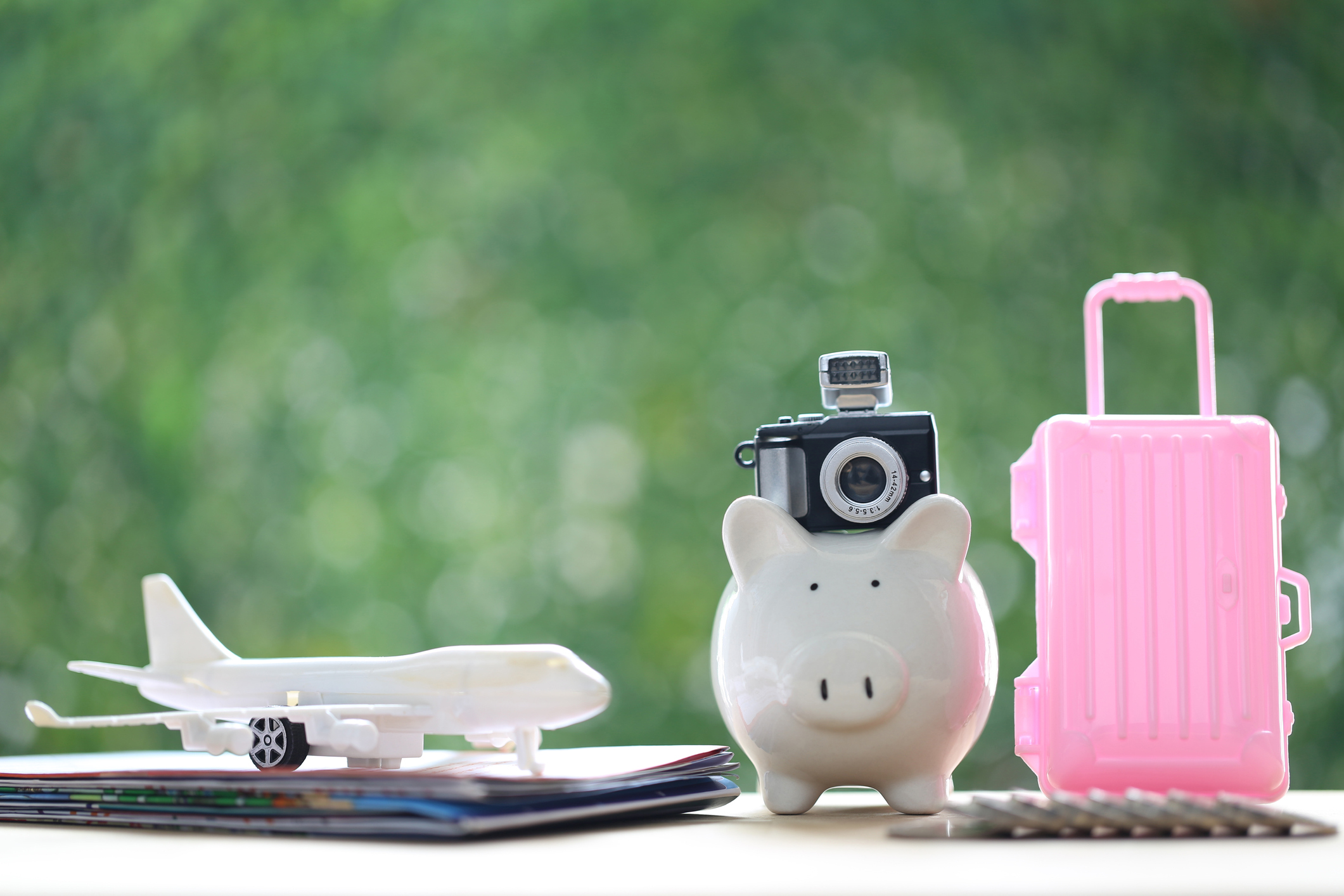Traveling for business can be expensive, but did you know that you may be able to deduct many of those expenses on your taxes? If you’re someone who frequently travels for work, understanding how to claim travel tax deductions can save you a significant amount of money on your tax bill. However, navigating the rules and requirements for travel tax deductions can be complicated. In this article, we’ll cover everything you need to know to claim travel tax deductions, including eligibility criteria, deductible expenses, and record-keeping requirements. By the end of this guide, you’ll be prepared to take full advantage of the tax benefits available for business travelers.
Introduction to Travel Tax Deductions
Traveling for business or work-related purposes can be expensive, but did you know that you may be able to deduct some of those costs on your taxes? This article will discuss travel tax deductions and how they can help you save money. Whether you’re self-employed, a business owner, or an employee, understanding travel tax deductions can benefit you come tax season.
Why You Should Care About Travel Tax Deductions
As mentioned earlier, traveling for business can be costly, and we all know that every penny counts. Claiming travel tax deductions can help offset those expenses, reducing your overall tax liability. Additionally, the more expenses you can claim, the higher your deductions will be, which could result in a larger tax refund or lower tax bill.
The Benefits of Claiming Travel Tax Deductions
Claiming travel tax deductions can have several benefits, including reducing your taxable income, decreasing your overall tax liability, and increasing your tax refund. By claiming allowable travel expenses, you can lower your taxable income and save money on taxes. In some cases, you may also be able to carry forward some expenses to future tax years.
Understanding the Criteria for Eligibility
To claim travel tax deductions, you need to meet certain criteria. The IRS has specific rules and regulations regarding what qualifies as a business trip and what expenses can be deducted. Understanding these criteria is crucial to ensure that you’re eligible for the deductions you’re claiming.
What Qualifies as a Business Trip
Generally, a business trip is any travel that is taken mainly for business purposes. This can include attending meetings, conferences, training, and other work-related events. However, the IRS has strict rules regarding what qualifies as a business trip, so it’s essential to keep detailed records and documentation of your travel expenses.
How to Determine Your Tax Home
Your tax home is the primary place where you conduct business or work-related activities. To determine your tax home, you need to consider factors such as the location of your employer, the length of time you spend working in a particular location, and the nature of your work.
Airfare and Transportation
Airfare and transportation costs are often the most significant expenses when traveling for business. Fortunately, these expenses are generally deductible as long as they meet certain criteria.
Deductible Airfare Expenses
Airfare expenses are deductible as long as the trip is primarily for business, and the cost of the ticket is reasonable. However, if you choose to extend your trip for personal reasons, you can only deduct the portion of the airfare that relates to the business portion of the trip.
When Transportation is Deductible
Transportation expenses such as taxis, rental cars, and public transportation are typically deductible if they’re primarily for business purposes. However, if you use the vehicle for personal reasons, you may only deduct the portion of the cost that relates to the business portion of the trip.
Accommodation Expenses
Accommodation expenses can also be a significant expense when traveling for business. Fortunately, these expenses are typically deductible as long as they meet certain criteria.
Claiming Lodging Expenses
Lodging expenses such as hotels, motels, and rentals are generally deductible as long as they’re primarily for business purposes. However, if you extend your trip for personal reasons, you can only deduct the portion of the lodging expense that relates to the business portion of the trip.
When Accommodation is Deductible
To be deductible, accommodation expenses must be necessary and reasonable. In other words, the cost of the accommodation must be reasonable for the circumstances, and it must be necessary for you to stay in that location for business purposes.
Meals, Entertainment, and Incidental Expenses
When it comes to travel tax deductions, one of the biggest expenses you may incur is meals, entertainment, and incidental expenses. However, not all of these expenses are deductible, so it’s important to know what qualifies.
Deductible Meal and Entertainment Expenses
The IRS allows you to deduct 50% of the cost of meals and entertainment that are directly related to your business travel. This may include meals with clients or colleagues, as well as entertainment expenses like tickets to a show or sporting event. However, it’s important to keep detailed records of these expenses, including who you were with and the purpose of the expense.
Deducting Incidental Expenses
In addition to meals and entertainment, incidental expenses like tips, baggage fees, and transportation expenses are also deductible. These expenses don’t need to be directly related to a business meeting or event, but they must be incurred while traveling away from your tax home.
Documents and Recordkeeping Requirements
To claim travel tax deductions, you’ll need to keep detailed records of your expenses and the purpose of your trip. This can include receipts, invoices, and even notes on your calendar.
Required Documentation for Travel Expense Claims
The IRS requires that you keep documentation of all travel expenses, including receipts for meals and entertainment, as well as any transportation and lodging expenses. You’ll also need to record the purpose of the trip and the dates you were away from home.
How Long to Keep Your Records
It’s important to keep your records and documentation for at least three years after you file your taxes. However, it’s a good idea to keep them for even longer, especially if you’re self-employed or in a high-risk industry where audits are more common.
Tips for Maximizing Your Travel Tax Deductions
If you want to maximize your travel tax deductions, there are a few tips to keep in mind.
Plan Your Travel to Maximize Deductions
Try to schedule your business meetings or events in a way that maximizes your deductible expenses. For example, if you have a meeting on Monday in one city and another on Friday in another city, see if you can schedule additional meetings or events in between to extend your travel time and increase your deductible expenses.
Double-Check Your Records for Accuracy
Before filing your taxes, double-check your records and documentation to ensure that everything is accurate and up-to-date. This can help you avoid errors or discrepancies that could trigger an audit.
Professional Advice on Travel Tax Deductions
If you’re unsure about how to claim travel tax deductions or want to ensure that you’re maximizing your deductions, it may be a good idea to seek advice from a tax professional.
When to Seek Advice from a Tax Professional
If you’re self-employed, have complex travel expenses, or are unsure about the eligibility of certain deductions, it’s a good idea to seek advice from a tax professional.
Choosing the Right Tax Professional
When choosing a tax professional, look for someone with experience in travel tax deductions, as well as a strong understanding of your industry and business. You may also want to consider their level of availability, fees, and qualifications.In conclusion, claiming travel tax deductions can be a great way to save money on your taxes if you frequently travel for business. By keeping careful records, understanding the eligibility criteria, and maximizing your allowable deductions, you can significantly reduce your tax bill. If you’re unsure about any aspect of travel tax deductions, don’t hesitate to reach out to a qualified tax professional for guidance. With the right knowledge and preparation, you can make the most of your business trips while also enjoying the tax benefits available to you.
FAQ
Who is eligible for travel tax deductions?
To be eligible for travel tax deductions, your travel must be related to your business or work. This includes traveling to meet with clients, attending industry conferences, or conducting research. If your trip is primarily for personal reasons, you won’t be able to claim travel tax deductions for that trip.
What kinds of travel expenses can be deducted?
Deductible travel expenses can include airfare, lodging, meals, car rentals, and more. However, it’s important to keep in mind that only expenses that are directly related to your business travel can be claimed as deductions. For example, if you take a personal side trip during your business trip, you can’t claim the expenses for that side trip on your taxes.
Can I claim travel tax deductions if I work from home?
Yes, you can still claim travel tax deductions even if you work from home. However, to be eligible for travel tax deductions, you still need to be traveling for business purposes. If you’re simply commuting to and from your home office, those expenses aren’t eligible for deduction.
How do I know if I need professional assistance for claiming travel tax deductions?
If you’re unsure about any aspect of claiming travel tax deductions, it’s always a good idea to seek professional guidance. A qualified tax professional can help you navigate the rules and requirements for travel tax deductions, ensure that you’re claiming all eligible expenses, and help you avoid any potential audit risks.

